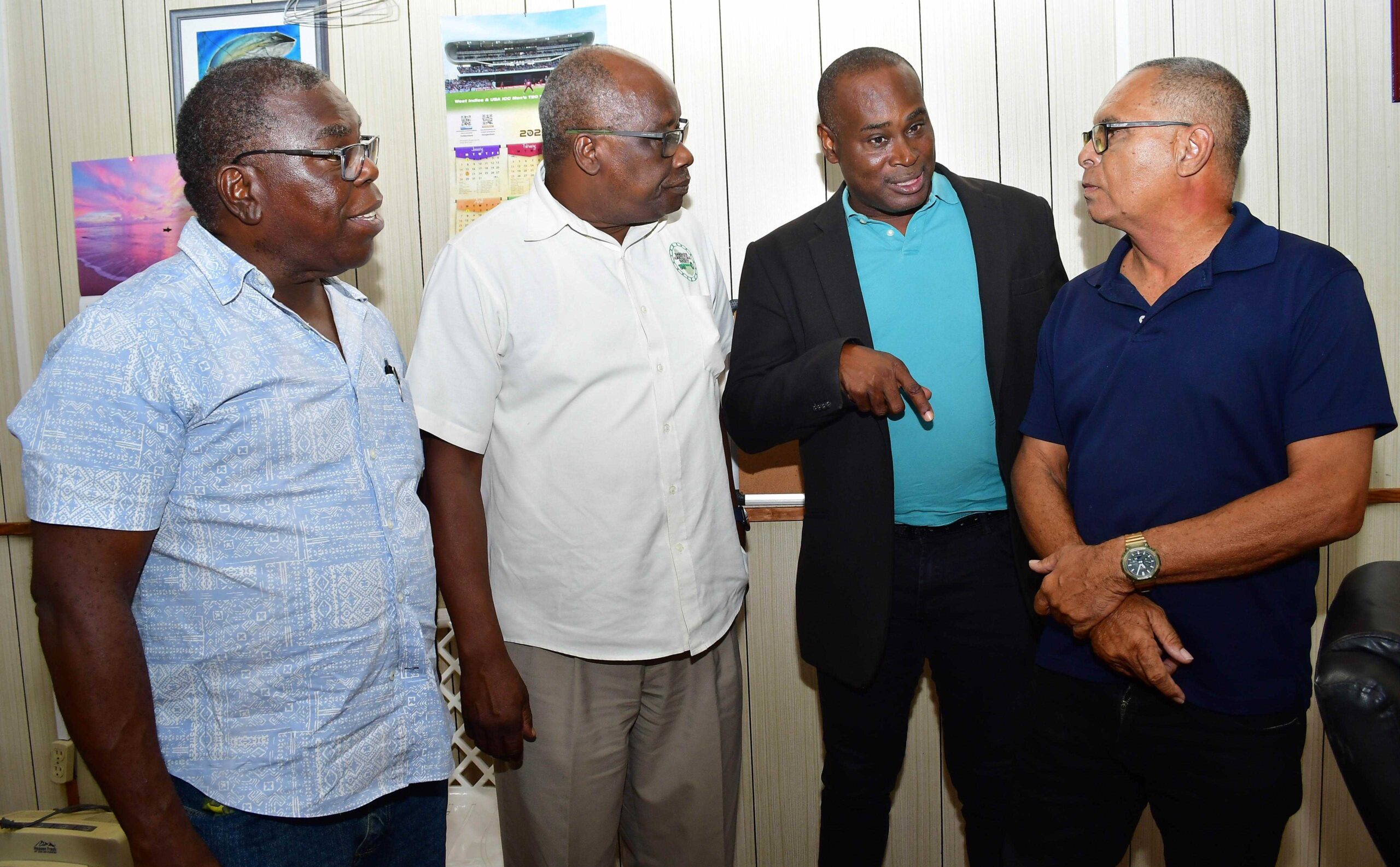Pork Producers Rally Against Surge in Imports, Seek Industry Consultation: BAS Supports Call for Greater Oversight

August 16, 2024
Pork producers in Barbados oppose increased pork imports, citing disruption to local production. The Barbados Agricultural Society supports farmers' calls for more consultation on import licences to protect their businesses.
Pork producers are opposing a sharp increase in pork imports, which they claim is severely disrupting local production and threatening the viability of their businesses. The Barbados Agricultural Society (BAS) is backing the farmers’ call for greater consultation before import licences are granted.
At a press conference held on Thursday at the BAS headquarters, farmers voiced their concerns about foreign pork flooding the domestic market in recent months, making it extremely difficult for them to sell their produce. They also reported that duties on some pork products, such as pork chops, appeared to be lower than in previous years, exacerbating the situation.
BAS Chief Executive Officer James Paul said: “At the last meeting we had, we indicated our concern that pork chops carried a reduced duty and that is unacceptable . . . When it comes to sensitive commodities, and pork is one of those sensitive commodities, we have to be very vigilant and communicate.”
Paul added: “l called for early consultation with the farming community. There’s not enough consultation. That is why, on the part of the BAS, [it is important] that we get into the conversation very early. And we observe and notice things [it is important] that we call out these people . . . And then before long, the damages are already done.”
Gay Reed of Barnwell Farm urged more stringent policing of pork imports.
“I think that there has to be more policing when it comes to imported pork . . . I think that will stop a lot of the cracks,” he said. Reed suggested that the Ministry of Trade could liaise with the BAS when processing import requests to ensure better oversight.
The farmers’ protests come despite a warning in April from Henderson Williams, president of the Barbados Pig Farmers’ Association, that domestic pork supply would be insufficient to meet the expected demand during the ICC’s Men’s T20 World Cup. At that time, Williams told Barbados TODAY: “Production is down. We have seen a reduction in terms of our local production and, obviously, if we are not producing as much, it justifies the need to import.”
Williams now argues that the importation is spiralling out of control. He cited several factors contributing to the industry’s decline, including competition from imports, high input costs, and reduced consumption levels due to the COVID-19 pandemic.
“We are activists, we are lobbying to ensure that things happen in a structured way; we’re not going to have a situation where we sit down and recognise that people are eating away at the industry and be silent about it,” Williams declared.
“We have a situation where there are too many imports into the space. It compromises the industry where local producers are not confident that when they go and spend thousands and thousands of dollars to fatten or to breed [their pigs] they don’t have a market for their stuff. That is a great concern and that is one of the things that are impinging farmers.”
The crisis has led two major producers to consider shutting down their operations. Steve Ifill of Pork City Farm cited uncertainties in the market, high production costs, and low returns on investment as reasons for potentially opting out of the business. Reed, with over 40 years of experience in the industry, indicated he was considering converting his property to a residential site.
Ifill expressed shock at pork retail prices, noting that while farmers receive only $15.40 per kilogramme, pork is being sold in outlets for $32.50 per kilogramme, with speciality cuts like loin fetching up to $50 per kilogramme.
“It is sad,” said Ifill on the state of affairs in the industry and his personal dilemma. “It is just a bad situation for pig farmers.”
The farmers maintain that if they work cohesively under the BAS and the Barbados Pig Farmers Co-operative Society, they could satisfy local demand for pork. Without immediate action and greater consultation, they said more farmers will be forced out of business, potentially jeopardising the island’s pork industry. (SZB)


